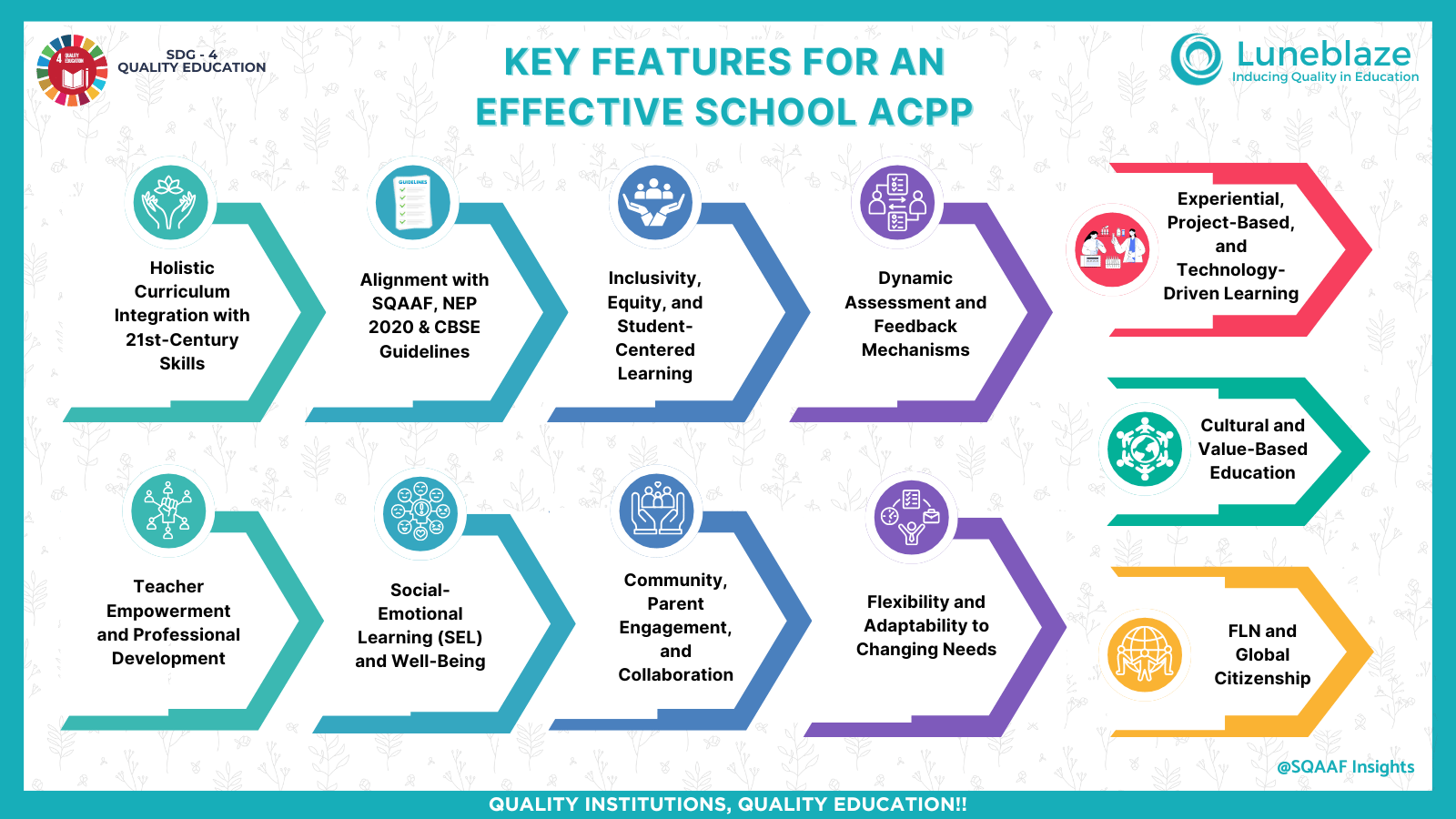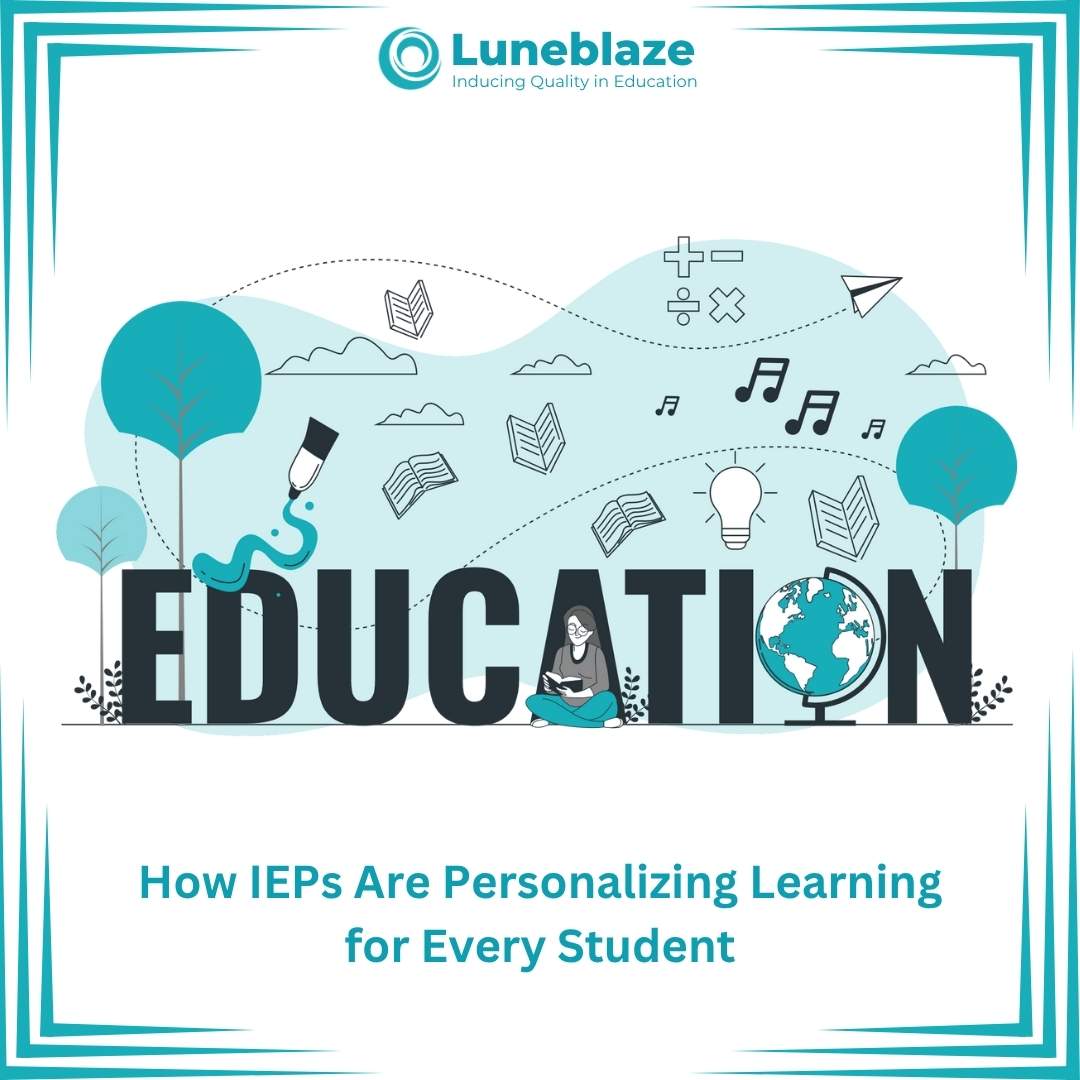The Annual Curriculum and Pedagogical Plan (ACPP): Key Features

Feb 06, 2025
Picture a classroom humming with energy, where every student is engrossed in meaningful activities, the teacher’s lesson seamlessly blending art, science, and values. This school environment thrives on structure, innovation, and vision—the essence of the Annual Curriculum and Pedagogical Plan (ACPP). Designed as a roadmap for educators, an ACPP goes beyond routine lesson plans, fostering an ecosystem that nurtures holistic learning, inclusivity, and adaptability. The preparation and implementation of an ACPP are integral components of the School Quality Assessment and Assurance Framework (SQAAF), ensuring schools uphold high educational standards while promoting continuous improvement and alignment with national educational goals as per NEP 2020.
Providing a structured outline that integrates school curricular goals, teaching methodologies, and assessment strategies, an ACPP embraces the new 5+3+3+4 pedagogical structure, offering a stage-wise approach to address the unique developmental needs of students as learners.
To ensure its success, the ACPP incorporates several key features that support its vision and mission, making it not just a framework but a dynamic tool for educators. Let’s take a closer look at these key Features of an Effective School ACPP:
1. Holistic Curriculum Integration with 21st-Century Skills:
The ACPP integrates interdisciplinary learning, vocational education, and 21st-century skills like critical thinking, creativity, and collaboration, preparing students for real-world challenges and the evolving demands of the future.
2. Alignment with SQAAF, NEP 2020, and CBSE Guidelines:
The ACPP ensures alignment with the School Quality Assessment and Assurance Framework (SQAAF), NEP 2020, and CBSE guidelines, establishing a modern, comprehensive education system that supports the 5+3+3+4 pedagogical structure while prioritizing quality standards and continuous improvement.
3. Inclusivity, Equity, and Student-Centered Learning:
The ACPP emphasizes inclusivity by catering to diverse learning needs, including students with special needs, and ensures that every learner has access to quality education through tailored strategies, promoting equity and student-centered learning.
4. Dynamic Assessment and Feedback Mechanisms: The ACPP fosters a dynamic assessment approach by incorporating formative, summative, and peer-based assessments, providing continuous feedback to students, and moving away from traditional high-stakes exams to measure a more comprehensive understanding of their progress. 5. Experiential, Project-Based, and Technology-Driven Learning: The ACPP promotes experiential and project-based learning that connects theory to practice, while integrating technology through ICT tools and digital platforms to enhance both in-person and online learning experiences. 6. Teacher Empowerment and Professional Development: Continuous professional development for teachers is central to the ACPP, empowering educators to implement innovative teaching methods and reflect on their practices, ensuring they remain aligned with the latest pedagogical trends. 7. Social-Emotional Learning (SEL) and Well-Being: The ACPP emphasizes the development of social and emotional skills, such as empathy, resilience, and self-regulation, alongside academic learning, fostering well-rounded students who are emotionally and socially capable. 8. Community, Parent Engagement, and Collaboration: The ACPP actively engages parents and the local community through regular updates, workshops, and feedback mechanisms, creating a collaborative environment that supports the overall educational journey and fosters a shared understanding of the curriculum. 9. Flexibility and Adaptability to Changing Needs: The ACPP provides a flexible framework that allows schools to adapt to changing educational needs, local contexts, and evolving student demands, while ensuring long-term goals are consistently met through regular self-assessments and continuous improvements. 10. Foundational Literacy, Numeracy, and Global Citizenship: The ACPP places strong emphasis on foundational literacy and numeracy, ensuring students develop essential academic skills in the early stages, while also promoting global citizenship, sustainability, and ethical decision-making for responsible, globally aware citizens. 11. Cultural and Value-Based Education: The ACPP fosters a curriculum that integrates values education, cultural awareness, and ethical decision-making, ensuring students respect diversity and develop a balanced global perspective while nurturing a strong ethical framework. In conclusion, the Annual Curriculum and Pedagogical Plan (ACPP) serves as a dynamic, comprehensive framework that not only guides educators in delivering a holistic and inclusive education but also aligns with modern educational standards. By integrating interdisciplinary learning, fostering teacher empowerment, and emphasizing the development of both academic and social-emotional skills, the ACPP ensures students are equipped for future challenges. With its focus on adaptability, equity, and global citizenship, the ACPP is a cornerstone for nurturing well-rounded, capable learners who are prepared for success in an ever-changing world. To support schools in their SQAAF journey, including preparation and implementation of ACPP, Luneblaze provides a comprehensive end-to-end solution to schools for all their accreditation criteria needs, be it documents & evidence creation, self-assessment filing support on the CBSE SQAAF portal, faculty trainings, audits, and consultancy support. With the help of Luneblaze’s AI-enabled solutions, institutions can organize and manage all their data related to accreditation and assessments like SQAAF for schools. Together, let’s raise educational standards. Partner with Luneblaze for SQAAF success. Reach out: sqaa@luneblaze.com.
Trusted by
100+
Institutions
worldwide
since 2017
Get started with Accreditation Excellence
Explore how our AI-enabled accreditation solution simplifies the accreditation journey









